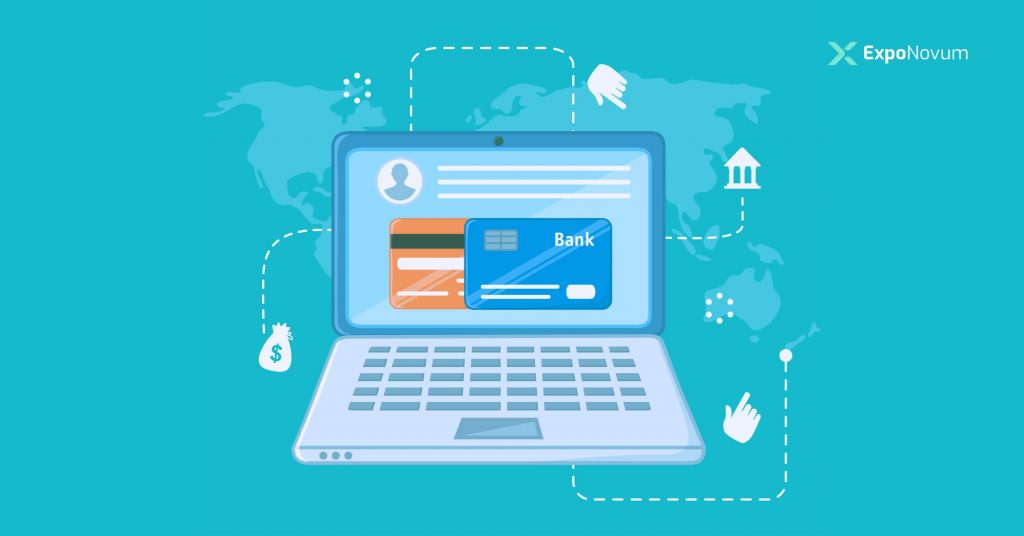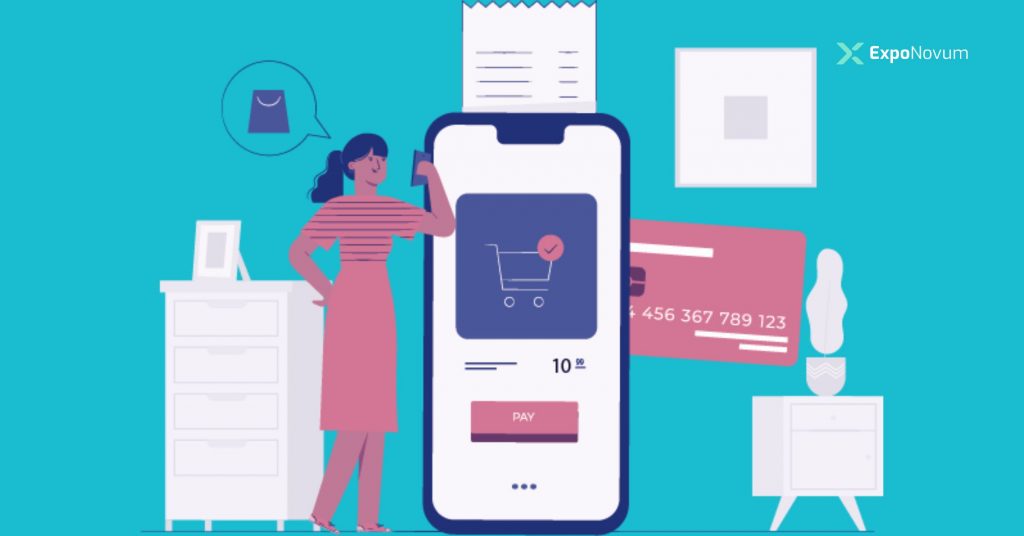Introduction
In the bustling world of e-commerce, the ability to facilitate smooth and secure online transactions is more than just a luxury—it’s a necessity. This is where payment gateway integration services come into play. These services bridge an e-commerce website and the bank that processes a customer’s credit card payment. Simply put, they are the digital equivalent of a physical point-of-sale terminal located in most retail outlets.
Payment gateway integration services are crucial for any online business, as they authorize the payment between merchant and customer. They play a pivotal role in enhancing the customer experience, ensuring transaction security, and increasing the overall efficiency of online business operations.
Understanding Payment Gateway Integration
Before we delve deeper into the nuances of payment gateway integration services, let’s take a moment to understand the basics.
What is a Payment Gateway?
A payment gateway is a technology merchants use to accept customer debit or credit card purchases. It’s a secure portal that connects your e-commerce website or over-the-phone (MOTO) payment system to your merchant account or payment processor.
The Role and Significance of Payment Gateway in Online Transactions
The role of a payment gateway is to act as a messenger between merchants and their customers. When a customer orders a product from a payment gateway-enabled merchant, the payment gateway performs a variety of tasks to process the transaction.
A payment gateway is significant in online transactions for several reasons:
- Security: It encrypts sensitive information, such as credit card numbers, to ensure that information passes securely between the customer and the merchant.
- Authorization: It authorizes payments for online businesses, including online retailers, e-businesses, or traditional brick-and-mortar.
- Enablement: It enables merchants to gather payment from their customers and get paid quickly, thereby improving business cash flow.
How Does a Payment Gateway Work?
Now that we understand what a payment gateway is and its role, let’s look at how it works. Here’s a step-by-step breakdown:
- A customer places an order on an e-commerce website and proceeds to checkout.
- At the checkout, the customer selects their preferred payment method and enters the necessary payment details.
- The e-commerce website sends these details to the payment gateway, which encrypts and forwards them to the merchant’s bank.
- The merchant’s bank sends this information to the customer’s bank for transaction approval.
- The customer’s bank sends back a response code (approval or denial) to the payment gateway.
- The payment gateway sends this response to the e-commerce website, completing the transaction.
In essence, a payment gateway is a tool that transmits the online store’s transaction details to the bank and then returns transaction approval or denial. This process takes only a few seconds and is a critical part of the online shopping experience.

The Need for Payment Gateway Integration Services
In the dynamic landscape of modern e-commerce, the importance of payment gateway integration services cannot be overstated. They are no longer a ‘nice-to-have’ but a ‘must-have’ for any online business. Let’s explore why.
The Necessity of Payment Gateway Integration in Modern E-commerce
In today’s digital age, customers expect seamless and secure online transactions. They want to be able to purchase products or services from the comfort of their homes, at any time, and from any device. This is where payment gateway integration comes into play.
By integrating a payment gateway into your e-commerce platform, you can provide your customers with a smooth and secure online shopping experience. It allows your customers to make payments using various methods, such as credit cards, debit cards, or digital wallets, enhancing their shopping experience and increasing their likelihood of purchasing.
The Impact of Payment Gateway Integration on Customer Experience and Business Operations
Payment gateway integration profoundly impacts both the customer experience and business operations.
From a customer’s perspective, a secure and efficient payment process can significantly enhance their shopping experience. It provides them with the confidence to make a purchase, knowing that their sensitive information is safe.
From a business perspective, payment gateway integration can streamline operations, reduce the risk of fraud, and improve cash flow. It can also provide valuable insights into customer behavior, which can be used to further optimize the shopping experience.
Articles to read:
Top 11 Revolutionary Benefits Of Using A Payment Solution For Small Businesses In 2023
Supercharge Your Cash Flow: How Recurring ACH Payments Can Transform Your Business
The Ultimate Battle: Authorize.net vs NMI for High Risk Businesses In 2023
Types of Payment Gateways
There are primarily two types of payment gateways – hosted and non-hosted (or integrated). Let’s delve into each one.
Hosted Payment Gateways
Hosted payment gateways redirect customers to the gateway provider’s platform to process the payment. Once the transaction is complete, customers are redirected back to the e-commerce website. PayPal is a classic example of a hosted payment gateway.
Pros:
- Easy to set up and use
- High level of security as the payment is handled by the gateway provider
Cons:
- The redirection might lead to a drop in conversion rates as it might not provide a seamless user experience
Non-hosted (Integrated) Payment Gateways
Non-hosted or integrated payment gateways allow customers to complete transactions within the e-commerce website without being redirected to another platform. Stripe is a popular example of a non-hosted payment gateway.
Pros:
- It provides a seamless user experience, as customers can complete the transaction without leaving the website
- Offers more control over the checkout process
Cons:
- Requires a higher level of technical expertise to set up and manage
- The e-commerce platform is responsible for security compliance
- Key Features of Payment Gateway Integration
When integrating a payment gateway into your e-commerce platform, several key features must be considered.
Security in Online Payments
Security is paramount in online transactions. A secure payment gateway should comply with the Payment Card Industry Data Security Standard (PCI DSS) and use encryption to protect sensitive data.
Basic Transaction Types in Payment Gateway
A robust payment gateway should support various transaction types, including authorization, capture, sale, refund, and void.
Payment Options and International Currencies Support
To cater to a global audience, your payment gateway should support multiple payment methods (credit cards, debit cards, digital wallets) and international currencies.
Maximum and Minimum Transactions Amount Handling
Depending on your business model, consider the maximum and minimum transaction amounts that a payment gateway can handle. Some gateways have limits on the transaction amounts, which could impact your business operations.

Choosing the Right Payment Gateway Integration Service
Choosing the right payment gateway integration service is a critical decision that can significantly impact your e-commerce business. Here are some factors to consider when making this decision.
Factors to Consider When Choosing a Payment Gateway
- Security: This is the most crucial factor. Ensure that the payment gateway adheres to the Payment Card Industry Data Security Standard (PCI DSS) and uses encryption to protect sensitive data.
- Cost: Understand the cost structure of the payment gateway. This could include setup fees, monthly fees, transaction fees, and any additional costs.
- Payment Methods: The payment gateway should support a variety of payment methods, including credit cards, debit cards, and digital wallets.
- Currencies: If you plan to sell internationally, ensure the payment gateway supports multiple currencies.
- Integration: Check how easy integrating the payment gateway with your e-commerce platform is.
- Customer Support: Look for a payment gateway provider that offers robust customer support.
Importance of Considering Business Type, Customer Base, and Other Factors
Your business type and customer base should also influence your choice of a payment gateway. For instance, if you have a global customer base, you’ll need a payment gateway that supports multiple currencies and payment methods. If you’re in a high-risk industry, you’ll need a payment gateway that specializes in high-risk businesses.
Top Payment Gateway Providers and Their Features
There are numerous payment gateway providers in the market, each with its unique features. Some of the top providers include:
- PayPal: Known for its ease of use and extensive reach, PayPal supports multiple currencies and payment methods.
- Stripe: Stripe is renowned for its powerful API and seamless user experience. It supports a wide range of payment methods and currencies.
- Square: Square is popular among small businesses for its comprehensive features, including inventory management, invoicing, and customer management.
- The Process of Payment Gateway Integration
Integrating a payment gateway into your e-commerce website is a critical process that involves several steps.

Step-by-step Guide on How to Integrate a Payment Gateway into a Website
- Choose a Payment Gateway: Based on the above factors, choose a payment gateway that suits your business needs.
- Set Up a Merchant Account: Most payment gateways require you to set up a merchant account.
- Integrate the Payment Gateway: Add the payment gateway API to your e-commerce platform. This process will vary depending on whether you use a hosted or non-hosted payment gateway.
- Test the Payment Gateway: Before going live, test the payment gateway to ensure it’s working correctly.
Differences in the Integration Process for Hosted and Non-hosted Gateways
The integration process for hosted and non-hosted gateways is slightly different. You must redirect your customers to the payment gateway platform for hosted gateways to process the payment. You’ll need to integrate the payment gateway API directly into your e-commerce platform for non-hosted gateways.
Importance of PCI DSS Compliance in the Integration Process
PCI DSS compliance is crucial in the payment gateway integration process. It ensures that your payment gateway adheres to the security standards set by the Payment Card Industry Security Standards Council, protecting your customers’ sensitive data.
Custom Payment Gateway Integration
While numerous off-the-shelf payment gateway solutions are available, there may be instances where a custom payment gateway integration is more suitable for your business.
When and Why to Consider Custom Payment Gateway Integration
Custom payment gateway integration should be considered when your business has unique needs that existing solutions cannot meet. This could be due to specific security requirements, the need to support a unique payment method, or the desire to provide a highly customized user experience.
The Benefits and Challenges of Custom Integration
Benefits:
- Flexibility: Custom integration allows you to tailor the payment gateway to your business needs.
- Differentiation: A custom payment gateway can provide a unique user experience, setting your business apart from competitors.
- Control: With custom integration, you have complete control over the payment process, including the user interface and user experience.
Challenges:
- Cost: Custom integration can be more expensive than using an off-the-shelf solution in terms of initial development and ongoing maintenance.
- Time: Developing a custom payment gateway can be time-consuming.
- Compliance: Ensuring compliance with security standards and regulations is your responsibility when you opt for custom integration.
Overview of Open-Source Solutions for Custom Integration
There are several open-source solutions available that can help facilitate custom payment gateway integration. These include:
- WooCommerce: A popular open-source e-commerce platform allowing custom payment gateway integration.
- Magento: Another widely used e-commerce platform that supports custom payment gateway integration.
Case Studies of Successful Payment Gateway Integration
To illustrate the impact of successful payment gateway integration, let’s look at some real-world examples.
- Amazon: Amazon uses a custom payment gateway to provide customers with a seamless and secure shopping experience. The integration of Amazon Pay allows customers to make purchases using information already stored in their Amazon accounts, making the checkout process quick and easy.
- Uber: Uber uses Braintree, a PayPal service, to process payments. This integration allows Uber users to pay for rides using various payment methods, including credit cards, debit cards, and PayPal.
These case studies highlight the importance of choosing the right payment gateway and integrating it effectively into your e-commerce platform.
Conclusion
Payment gateway integration services are a critical component of any e-commerce business. They facilitate secure online transactions, enhance the customer experience, and streamline business operations. Whether you choose an off-the-shelf solution or custom integration, choosing a payment gateway that aligns with your business needs is important.
Frequently Asked Questions (FAQs)
What is a payment gateway?
A payment gateway is a technology merchants use to accept customer debit or credit card purchases. It’s a secure portal that connects your e-commerce website or over-the-phone (MOTO) payment system to your merchant account or payment processor.
Why is payment gateway integration important?
Payment gateway integration is important as it facilitates secure online transactions, enhances the customer experience, and streamlines business operations.
What are the types of payment gateways?
There are primarily two types of payment gateways – hosted and non-hosted (or integrated). Hosted payment gateways redirect customers to the gateway provider’s platform to process the payment. Non-hosted payment gateways allow customers to complete transactions within the e-commerce website without being redirected to another platform.
How do I choose the right payment gateway?
Choosing the right payment gateway depends on several factors, including security, cost, supported payment methods, supported currencies, ease of integration, and customer support.
What is custom payment gateway integration?
Custom payment gateway integration involves developing a tailor-made payment gateway to meet specific business needs. This could be due to specific security requirements, the need to support a unique payment method, or the desire to provide a highly customized user experience.